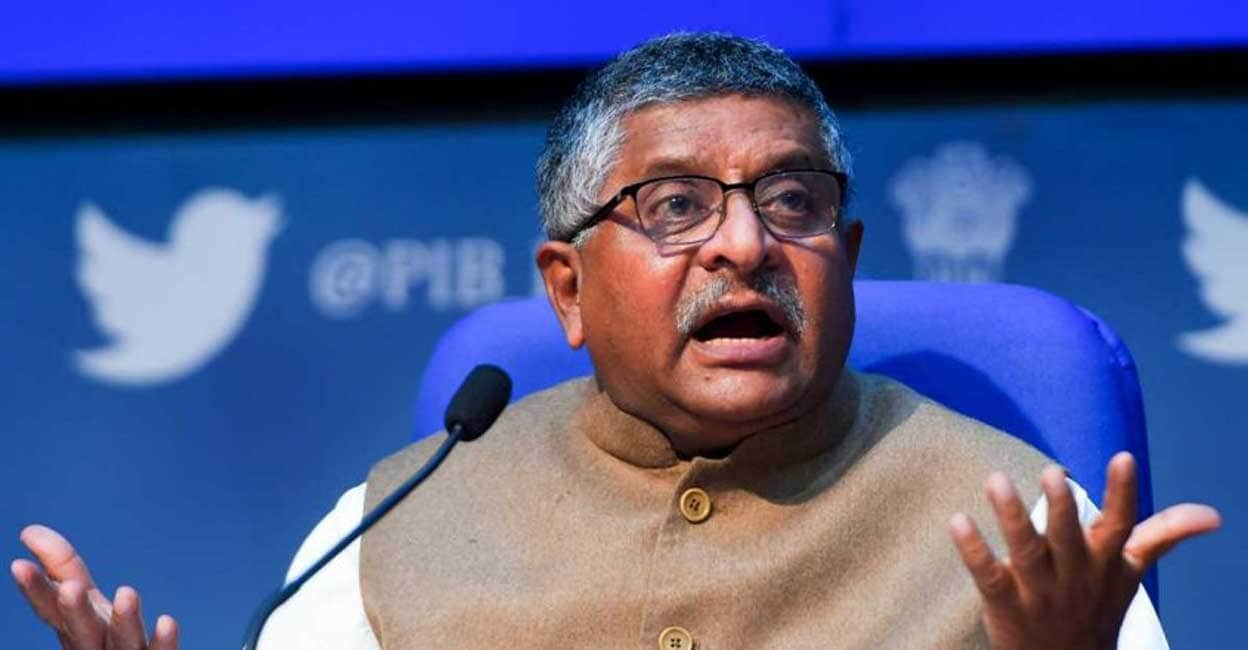Explained | Why is Indian govt at war with Twitter

Mail This Article
The air of hostilities between Twitter and the central government has clouded further with the former posting a distorted Indian Map in its Careers Section 'Tweep Life'.
This is the third time in 8 months that the microblogging is misrepresenting India's map.
In October 2020, the site had labelled Leh in Ladakh as part of China. A month later it showed Leh as part of Jammu and Kashmir, instead of Ladakh.

This time, an FIR has been filed against Twitter's Managing Director Manish Maheswari by the UP police for the error.
Distorting the map of sovereign nation is undoubtedly unacceptable. But what is the story behind the Twitter vs Govt of India war raging in the country?
May 26: Letter to comply with IT Rules
It all started with a letter issued by the Ministry of Electronics and Information Technology asking Twitter and other social media platforms like Facebook and Whatsapp to comply with the new Information Technology (Intermediary Guidelines And Digital Media Ethics Code) Rules, 2021 which became effective from May 26. All sites were given 3 months to comply with the guidelines issued on February 25.
Now, the main issues raised by the government was the failure of the site to appoint a Chief Compliance Officer, Nodal Contact Person and Grievance Officer. The rules also listed another requirement- all of them should be Indian residents.
Most significant social media intermediaries, including Facebook, Instagram, LinkedIn, WhatsApp, and Telegram, complied over the following week. But Twitter did not.
Safe Harbour immunity revoked
Now, the new IT rules came with a catch.
The safe harbour provision under Section 79 of the IT act, which protects intermediaries to function freely without having any such obligation to monitor the content before it is uploaded can be revoked on one condition--if it does not observe due diligence while discharging its duties and observe guidelines made by the Central Government in this regard.
And the Indian government, has done just that. On June 29, the government clarified that Twitter no longer enjoys the 'safe harbour' protection and it is no longer an intermediary under Section 79 of the IT Act.
This might spell trouble for Twitter. Four cases have been taken up against Twitter soon after it lost the legal immunity.
On Tuesday, June 29, the Uttar Pradesh government approached the Supreme Court, challenging the immunity granted by the Karnataka High Court to Manish Maheshwari from the responsibility a viral video involving the assault of an elderly man in Ghaziabad. The police had issued a notice to Twitter MD claiming the video was shared widely for inciting communal violence as it allegedly 'involved some Hindu men' beating up an elderly Muslim man.
On Wednesday, June 30, a case was lodged by the Cyber Cell of the Delhi Police for child pornography following a complaint by the National Commission for Protection of Child Rights.
The two other cases are in connection with the Indian map.
IT Rules and the issue of privacy
The new IT Rules challenges safety nets including Whatsapp's end-to-end encryption enforced by social media platforms. However, the government insists that the code is required to encourage companies to self-regulate and control the wide sharing of media that defames people including women and children on the internet.
Though it looks like a standard proceeding in a country for the violations of norms, many are of the view that the government is targetting Twitter for some of the actions against the ruling party.
Controversies galore
Here are some of the controversial incidents that led to the current state of affairs.
Manipulated Media tag on Sambit Patra's tweet
On May 18, the BJP spokesperson Sambit Patra had tweeted screenshots of a 'Congress toolkit' discrediting Prime Minister Narendra Modi and the handling the Covid situation in India.
Congress alleged that the toolkit was fake and forged letters were used in the screenshots shared by the BJP leader and raised the issue with twitter. An FIR was also filed against some BJP leaders for retweeting the same.
Following this, Twitter added the manipulated media tag to Patra's tweet on May 21.
The platform was asked by the government to remove the tag as the toolkit case was under investigation.
May 24: Delhi Police visits Twitter Office
Soon after the incident on May 24, Delhi Police visited Twitter India's Delhi, Gurugram offices to serve a notice o the social media platform directly on the 'toolkit' case.
Following this on May 27, Twitter accused govt of "dangerous overreach inconsistent with open, democratic principles.”
The Centre shot back accusing it of deliberately subverting the law.

June 5: Blue tick controversy
The next controversy erupted when the verified blue tick badge disappeared from Vice President M Venkaiah Naidu's twitter account on June 5.
The social media platform argued that the action was undertaken as the account was inactive for the past 6 months. The verified badge was restored later after the widespread online protests.
On the same day, the Union Ministry shoots off a final communication to Twitter asking the to comply with the rules.
Meanwhile, Twitter announced the appointment of Dharmendra Chatur as interim resident grievance officer, one of the requirements in the government's list. Chatur later quit the post on June 27 and a US citizen was appointed to the post. But that violated the mandatory 'Indian resident' requirement for the post.

June 25: Ravi Shankar Prasad's account blocked
The next issue arose on June 25. Union Minister Ravi Shankar Prasad raised a storm after Twitter blocked his account for an hour following a DMCA notice.
Ravi Shankar Prasad had in fact tweeted a video including AR Rahman's song Maa Tujhhe Salaam which was copyrighted by Sony Music Entertainment.
Congress leader Shashi Tharoor replied to the tweet saying the same thing occurred to him while tweeting a video with Boney M's 'Rasputin' song as background music.
Now, on June 28, Twitter advertised vacancies for a resident grievance officer, a nodal officer, and a chief compliance officer for India on its website but it was too little and too late.
If the microblogging site fails to comply with the regulations, it is likely to be banned in India. The ruling BJP is already promoting apps like Koo to replace Twitter.


